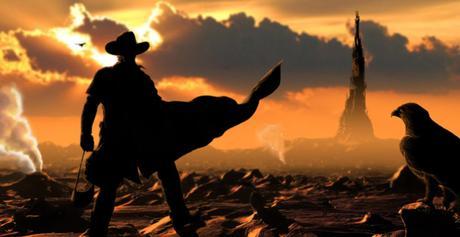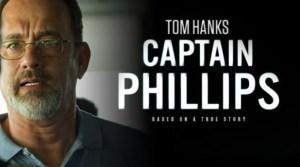In Variety’s recent profile of Sony Picture Entertainment’s new chairman Tom Rothman, we learn that the studio has basically mirrored the way sports teams often transition from a nurturing player’s coach to a hard-nosed taskmaster. Under former boss Amy Pascal, Sony was remarkably talent-friendly to the point that they eventually ignored common sense while indulging Seth Rogen’s imprudent artistic impulses with The Interview. Now, it’s like Rothman has inherited Pascal’s coaching staff in the form of many holdover executives, and their temperaments are somewhat incompatible with their new boss, who would fire most of them if only his former employees at Fox didn’t keep turning down his offers to come work for him at Sony.
Rothman has not been in charge for very long. He spent the majority of his career at Fox (1994-2012), where he created their celebrated art-house label Fox Searchlight and oversaw consistent profitability and two of the biggest films of all time, Titanic and Avatar. He resigned his position as co-chair in 2012, and re-launched TriStar Pictures at Sony in 2013, making him personally responsible for such upcoming films as Meryl Streep’s Ricki and the Flash, Robert Zemekis’ 3D Philippe Petit biopic The Walk, and Ang Lee’s adaptation of Billy Lynn’s Longtime Halftime Walk, which is being filmed at the highest frame rate ever used on a feature. He was only promoted to replace Pascal this past February, and he’s inherited a real fixer-upper.

Annie (Charlotte Le Bon) and Philippe Petit (Joseph Gordon-Levitt) in TriStar Pictures’ THE WALK.
In 2012, Sony/Columbia was the leading film studio in terms of market share, pulling ahead of Warner Bros. thanks to hits like Skyfall (still the highest-grossing film in Sony’s history), The Amazing Spider-Man, and Men in Black 3. In the years since then, it has slipped down the list to the point that it is currently tied with Lionsgate for 6th, which is especially damning since Lionsgate is technically only a mini-major studio. All of Sony’s summer offerings (Aloha, Ricki and the Flash, Pixels) are decidedly thin in terms of box office prospects. November’s new James Bond film Spectre will bring with it a hot injection of cash, but it will be bittersweet since it marks the conclusion of their deal with MGM to co-finance and distribute all Bond movies. Rothman knows MGM could take 007 elsewhere, “The reality is that Sony’s had a fantastic run with the Bonds. Sure we’re going to compete for (the rights), but let’s be honest, so is everybody in the business.” Many of their other franchises have dried up (check out Empire’s infographic of which studios own which film franchises). Hotel Transylvania and Smurfs sequels are at least on the way, and Cloudy With a Chance of Meatballs is transitioning to TV. Their commitment to Adam Sandler might have finally hit a wall. It’s not clear if Denzel Washington will turn The Equalizer into a franchise (he’s never made a sequel). They still have Spider-Man, but now they’re loaning him out to Marvel Studios. All of this is happening under the increasingly watchful eye of parent company Sony Corp. which has been repeatedly encouraged to cut their losses and spin off their film division.
Rothman’s strategy to save Sony is to prioritize projects that will play well overseas while being more fiscally responsible and pursuing a more synergistic approach, i.e., leverage Playstation properties into films and TV shows and Sony recording artists into biopics (e.g., Beautiful: The Carole King Musical.) Plus, he’s aggressively buying up the rights to more novels and best-sellers, recently landing Stephen King’s Dark Tower series, which will be turned into a Lord of the Rings-like series of films. He’s also mico-managing in ways Pascal never did, personally demanding multiple revisions to the trailers for Adam Sandler’s Pixels.

Of Stephen King’s Dark Towers series, Rotham said, “It’s sprawling and challenging,” but they’ve come up with a “creative solution” that “unlocks the power” of the material.
That’s all fine and good, but one of the lasting legacies of the Sony hack is the wedge it drove between both the studio and theater owners and the studio and filmmakers. Rothman’s initial job should be to soothe those fractured relationships, but he was brought in to cut costs and that’s what he’s done, trampled toes be damned. The filmmakers who have already had their projects canceled by Rotham include super-producer Scott Rudin (who wanted to adapt Little House on the Prairie at a budget of $45m), director Roland Emmerich (a nanotechnology thriller called “Singularity”), producer Lorenzo di Bonaventura (an action flick called “Five Against a Bullet”), and producer Neal Moritz (a family film called “Christian the Lion”). Plus, Rothman’s already cut the budget of the all-female Ghostbusters, and there are salary battles on the horizon since Jennifer Lawrence’s requested paycheck of $20 million for sci-fi film Passengers co-starring Chris Pratt has gone public and could be precedent-setting.

Maybe call the producers to double-check what your budget is now that Rothman is in charge
That’s just business, though. Phil Lord and Chris Miller like working with Rothman. They have an animated Spider-Man movie as well as a third 21 Jump Street which will include a Men in Black crossover, “We wanted to take ‘Jump Street’ in an insane direction. It was a bold approach we were trying at Sony before Tom came, and we weren’t sure what his appetite would be for making a movie like that, but he got it right away.” Robert Zemeckis is also appreciative of Rothman’s abilities, “The Walk is a very risky film. One of the things I admire about Tom is he doesn’t just make the safe bet.”

The fear has been that the more financially-driven Rothman will abandon the studio’s commitment to producing Best Picture-caliber films in pursuit of gaining more market share. This is a world of franchises, which Sony has in short supply, thus the push for a new Ghostbusters and a 21 Jump Street/Men in Black cross-over. However, Rothman’s closing words to Variety suggest a bigger picture, “I don’t really know that the long-term future of the movie business is the sequelization of life. I’m not really sure that the studio that will be the market leader a decade from now will be the one with the most sequels as opposed to the most innovative one or the one that finds what a new event is. I genuinely believe there are audiences out there for other, big worldwide event films, and I think the studio in the next few years that manages to innovate and capture them — that may be the single most important nut to crack. What is it that’s going to galvanize audiences who aren’t interested in comic books? They can’t be the only viewers.”
Source: Variety

